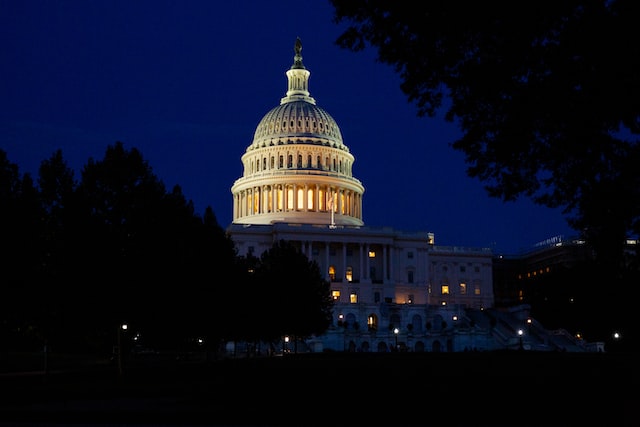What do the US Midterms Mean for Investors?
Rene Anthony
Key takeaways:
A divided Congress is set to put a handbrake on the Biden administration legislative agenda, with differences on clean energy and fossil fuels, and the debt ceiling looming
Despite the divide, markets tend to perform well when Congress is split, and the post midterm period often heralds major returns for the stock market
With the results of the US midterm elections now all but confirmed, US Congress is set for gridlock over the next couple years.
The Democrats have at least maintained the status quo in the Senate, while the Republicans have gained control of the House. That means the two parties will be controlling different chambers that form the legislative process.
What does this mean for investors? Here are some potential watch-points for the next couple years.
1. Less Legislative Action
Gridlock in Congress means a divided government. Between the Democrats and the Republicans, the two sides already have starkly opposing views on a number of matters. However, a divided government means it is even less likely that significant legislative action will occur over the rest of the current term.
In other words, investors will have some sense of stability, clarity, and certainty. Historically, markets have responded favourably to this type of scenario as there is less policy and regulatory risk, and because the only policies that get enacted during this type of government are those with bipartisan support.
2. Potential Scrutiny for Corporates
Certain companies have found themselves caught up in a number of political, social, and environmental issues over recent years, and with the Republicans gaining control of the House, they may have the remit to conduct hearings that bring questions against these companies.
The businesses that would be most vulnerable to scrutiny of this nature include Walt Disney (NYSE: DIS), BlackRock (NYSE: BLK), and Delta Airlines (NYSE: DAL). While a split Congress mitigates the likelihood of any regulatory changes arising from said hearings, these companies could attract unwanted attention and a direct line of questioning into their operations.

3. Post-Midterm Returns Tend to Increase
While past performance is no indicator of future performance, history suggests that the stock market does better in the aftermath of a midterm election, regardless of which party takes control of Congress.
Data across the last six decades also suggests that the third year of a presidential term delivers the highest returns for the S&P 500. In the one-year period after a midterm election, the S&P 500 has returned an average of 16.3%, versus just 0.3% in the same timeframe leading up to the midterms.
Furthermore, in 17 of the last 19 midterms, the S&P 500 performed better in the half-year following the election, rather than the same period prior.
4. Debt Ceiling Impasse Looms
With the current level of US government debt at US$31.2 billion, and the US debt ceiling at US$31.4 trillion, the US is scheduled to hit the limit in early 2023 due to ongoing large budget deficits and the need for the US Treasury to borrow money.
What happens in these scenarios is typically a drawn-out process where the two parties negotiate an increase in the debt ceiling in order to avoid a government shutdown, and worse, a default on US government borrowings.
With Congress split, the Republicans are likely to push hard for spending cuts to justify an increase in the debt ceiling. Democrats, including President Biden, have signalled no compromises as far as social security and Medicare.
The risk here is that an impasse over spending cuts and the debt ceiling could lead to a government shutdown and the threat of default on US debt - in turn, raising borrowing costs and constraining economic growth. In 2011, a similar standoff resulted in the United States' credit rating being downgraded, and markets were rocked due to downward pressure on risk assets.
5. Conflicting Views on Taxes and Sectors
With Republicans wrestling back the House, there are certain sectors that may become a focal point in that chamber as the party makes an effort to impose its muscle over Congress. Similarly, the Democrats will be targeting certain areas as well.
Although both will be limited in their powers to enact legislation, the sectors may still garner investor attention. Some of the sectors that may find themselves in the spotlight are those where the two parties have differences, including oil and gas, clean energy, big tech, and cannabis. For areas like defence and infrastructure, it is likely the status quo will prevail.
More broadly, the two parties are also in disagreement about a minimum 15% global corporate tax rate, which is due to take effect next year. As it stands, Republicans are against the proposal, and with control of the House, would have the numbers to block relevant legislation.
For the deal to pass a split Congress, Republicans will likely push for a major compromise from the Democrats. The implications here will directly impact earnings for a number of US stocks, including high-profile tech companies.
Important disclaimer: SelfWealth Ltd ABN 52 154 324 428 (“Selfwealth”) (AFSL 421789). The information contained on this website is general in nature and does not take into account your personal situation. You should consider whether the information is appropriate to your needs, and where appropriate, seek professional advice from a financial adviser and/or accountant. Taxation, legal and other matters referred to on this website are of a general nature only and should not be relied upon in place of appropriate professional advice. You should obtain the relevant Product Disclosure Statement for any product mentioned and consider its contents before making any decision.





